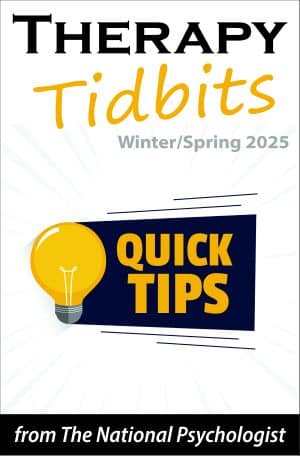- ADHD
- Adults
- Alternative Medicine
- Alzheimers & Aging
- Animal-Assisted Therapy
- Autism
- Behavior Therapy
- Child & Adolescent
- Closeout
- Communication
- Couples-Family-Parenting
- Cultural Diversity
- Depression & Anxiety
- Domestic Violence
- Ethics & Risk Management
- Gender Identity
- HIV-AIDS
- Human Trafficking
- Laws & Rules
- Medical Errors
- Mindfulness & Yoga
- Miscellaneous
- National Psychologist
- Nutrition & Fitness
- Pain Management
- Psychotherapy
- Sexuality
- Substance Abuse
- Suicide
- Supervision
- Trauma & PTSD
Ethics & Risk Management: Expert Tips 9
Dan Taube, JD, PhD; Joe Scroppo, PhD, JD; Linda Knauss PhD, ABPP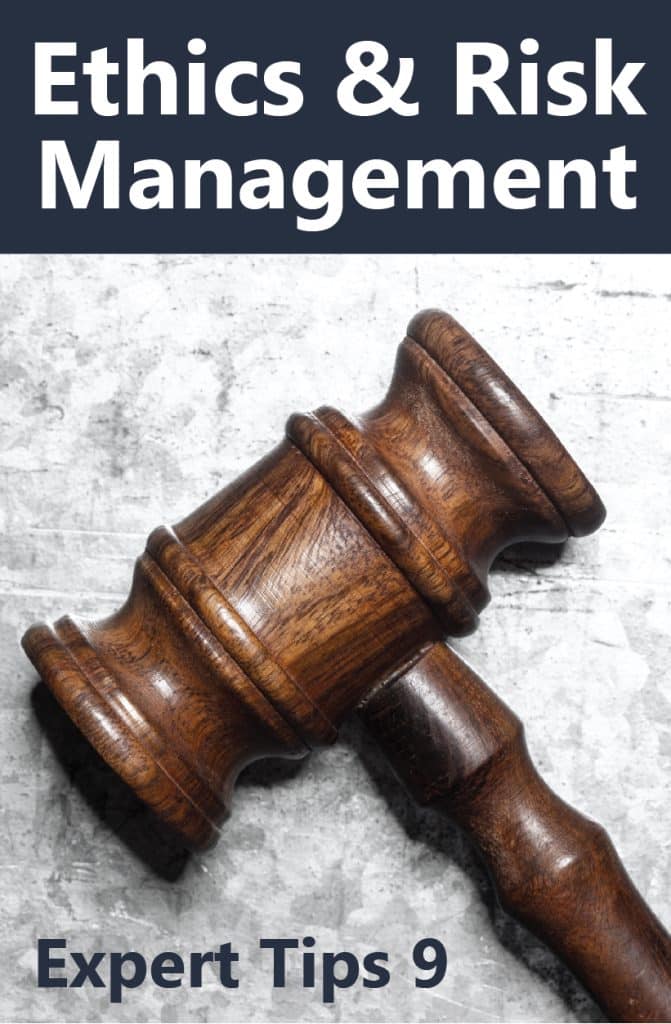
$39.00
 Intermediate
Intermediate
 Online
Online
Course Abstract
Ethics & Risk Management: Expert Tips 9 is a 3-hour online continuing education (CE) course that addresses a variety of ethics and risk management topics in the form of 26 short articles, written by experts in the field. Topics include:
- Addressing Boundary Issues – Discusses the risks, benefits, and ethics of boundary crossings and multiple relationships in therapy.
- Consider Risks When Contracting with Commercial Teletherapy Companies – Highlights the risks and provides suggestions for working in e-therapy.
- Ethical Considerations in Hospital Settings – Discusses the unique ethical challenges professionals in hospital settings face.
- What is a Disability, Anyway? – Discusses the legal considerations involved in certifying a patient as “disabled” or having a “disability related need.”
- Pre-Employment Evaluations for Police and Public Safety – Reviews clinical criteria for completing pre-employment psychological evaluations.
- Exposure Varies in Alternative Practice Models – Discusses potential risks and benefits of alternative practice models.
Confidentiality Limited for Service Members – Provides guidance for civilian clinicians that provide mental health services to members of our military. - To Terminate or Not to Terminate? – Offers practice tips for clinicians to use when considering terminating therapy with clients.
- Investigation Notice Not Cause for Panic – Illuminates steps you can take to prepare yourself and your practice, now and ahead of time, for the inevitable complaint.
- Duty to Warn: Don’t Get Distracted by Legal Cases – Evaluates that laws may change, but the focus of “duty to warn” stays the same.
- Taking on a Supervisee – An overview of best practice tips practitioners would be wise to consider before beginning a supervisory role of their own.
- African American Families, Diversity and Ethics – A navigators’ guide to traversing the complexity of African American diversity with integrity and effective professionalism.
- Protect Yourself from Ransomware – Explores common cyber-security threats and what can be done to mitigate these risks to your practice.
- The Importance of Informed Consent – An answer to the question, “When and which elements of informed consent are required in the case of court-ordered evaluation?”
- Laws/Rules Vary for Telepsychology Practice – Discusses the need for researching the ethical and legal guidelines before offering telepsychology services.
- Working Ethically with LGBTQ Clients – Explores complications that can arise when treating sexual and gender minority clients and offers suggestions to help the clinician.
- Deaf or Hard-of-Hearing Clients Require Special Ethical Consideration – Provides a look at why it is important to offer interpreters to HOH or deaf clients and the ethical concerns associated with it.
- How to Fine Tune Consultations – Offers advice on how to determine when a consultation may be necessary and who may be best equipped to provide you the necessary information.
- High Quality, Well Documented Patient Care is Risk Management – Explains how developing habits of good practice and judicious competence underlie risk management protocols.
- Ethics of Technology and Clinician Responsibility – Differentiates between psychological testing and assessment of patients and highlights the importance of the clinician’s expertise in the process.
- Unique Peer Consultation Issues in Rural Alaska – Highlights the need for developing connections with trusted peers, who can support the clinician living and working in a rural Alaskan community.
- Therapists Vulnerable to Sexual Misconduct Accusations – Reminds practitioners of the importance of having effective policies, practices, and education in place to protect oneself against allegations of misconduct.
- When Being Too Helpful Can Backfire – Discusses the difference between ‘good customer service’ and a therapeutic relationship.
- How to Handle Conflicts of Ethics and the Law – Provides examples of times when the Ethics Code conflicts with the law and offers strategies to resolve these conflicts.
- Managing Risks of Telepsychology – A brief overview of the possible risks associated with telepsychology.
- Supervising in the Age of #MeToo, Trigger Warning and Safe Spaces – A look at the nuances of interactions between supervisors and supervisees in light of the current social and political climate.
Course #31-22 | 2019 | 51 pages | 26 posttest questions
Learning Objectives
- Identify the ethical issues and risks involved in work with commercial teletherapy companies
- List strategies for ethical practice in pre-employment evaluations and work with service members
- Name ethical challenges in taking on a supervisee and working with African American families
- Describe ethical issues in telepsychology practice and working with LGBTQ clients
- Identify ethical risks and clinician responsibility in using technology in psychotherapy
- List legal, clinical, and ethical issues in supervision in the age of Me Too
Course Directions
This online course provides instant access to the course materials (PDF download) and CE test. The course is text-based (reading) and the CE test is open-book (you can print the test to mark your answers on it while reading the course document).
Successful completion of this course involves passing an online test (80% required, 3 chances to take) and we ask that you also complete a brief course evaluation.
About the Author(s)
Dan Taube, JD, PhD : Find out More
Dan Taube, JD, PhD, risk management consultant with The Trust, is a psychologist and professor at the California School of Professional Psychology-San Francisco. His email address is dtaube@alliant.edu.
Disclosure
Financial: No relevant financial relationship exists.
Nonfinancial: No relevant nonfinancial relationship exists.
Joe Scroppo, PhD, JD : Find out More
Joe Scroppo, PhD, JD, risk management consultant with The Trust, is a forensic psychologist and attorney in Woodmere, N.Y. His email address is: scroppo@optonline.net.
Disclosure
Financial: No relevant financial relationship exists.
Nonfinancial: No relevant nonfinancial relationship exists.
Linda Knauss PhD, ABPP : Find out More
Linda K. Knauss, PhD, ABPP, is a professor at Widener University’s Institute for Graduate Clinical Psychology. In addition, she maintains a private clinical practice where she sees children, adolescents, adults and families. Her email address is: lkknauss@widener.edu.
Disclosure
Financial: No relevant financial relationship exists.
Nonfinancial: No relevant nonfinancial relationship exists.
CE Information
Counseling
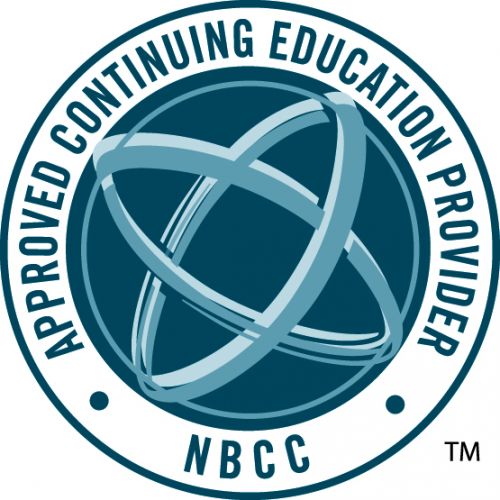
Professional Development Resources (PDR) has been approved by the National Board for Certified Counselors (NBCC) as an Approved Continuing Education Provider, ACEP No. 5590. Programs that do not qualify for NBCC credit are clearly identified. PDR is solely responsible for all aspects of the programs.
Professional Development Resources is CE Broker compliant (#50-1635 - all courses are reported within two business days of completion). Professional Development Resources, Inc. is recognized by the New York State Education Department’s State Board for Mental Health Practitioners as an approved provider of continuing education for licensed mental health counselors (#MHC-0135 - Note: New York counselors will receive 3 continuing education credits for completing this self-study course).
Marriage and Family Therapy
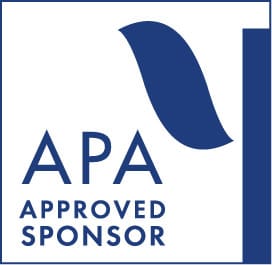
Professional Development Resources is approved by the American Psychological Association (APA) to sponsor continuing education for psychologists. Professional Development Resources maintains responsibility for this program and its content. Professional Development Resources is also approved by the National Board of Certified Counselors (NBCC ACEP #5590); the Association of Social Work Boards (ASWB #1046, ACE Program); the New York State Education Department's State Board for Mental Health Practitioners as an approved provider of continuing education for licensed marriage and family therapists (#MFT-0100 - Note: New York MFTs will receive 3 continuing education credit(s) for completing this self-study course); the Texas Board of Examiners of Marriage and Family Therapists (#114); and is CE Broker compliant (#50-1635 - all courses are reported within two business days of completion).
Psychology

Professional Development Resources is approved by the American Psychological Association (APA) to sponsor continuing education for psychologists. Professional Development Resources maintains responsibility for this program and its content.
Professional Development Resources is CE Broker compliant (#50-1635 - all courses are reported within two business days of completion). Professional Development Resources, Inc. is recognized by the New York State Education Department’s State Board for Psychology as an approved provider of continuing education for licensed psychologists (#PSY-0145).
School Psychology

Professional Development Resources is approved by the American Psychological Association (APA) to sponsor continuing education for psychologists. Professional Development Resources maintains responsibility for this program and its content.
Professional Development Resources is CE Broker compliant (#50-1635 - all courses are reported within two business days of completion). Professional Development Resources, Inc. is recognized by the New York State Education Department’s State Board for Psychology as an approved provider of continuing education for licensed psychologists (#PSY-0145).
Social Work
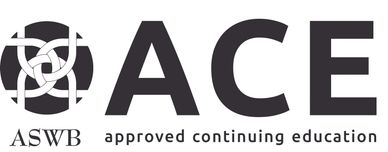
Professional Development Resources, #1046, is approved as an ACE provider to offer social work continuing education by the Association of Social Work Boards (ASWB) Approved Continuing Education (ACE) program. Regulatory boards are the final authority on courses accepted for continuing education credit. ACE provider approval period: 6/12/2022 - 6/12/2025. Social workers completing this course receive 3 ethics continuing education credits.
Professional Development Resources is CE Broker compliant (#50-1635 - all courses are reported within two business days of completion). Professional Development Resources, Inc. is recognized by the New York State Education Department's State Board for Social Work as an approved provider of continuing education for licensed social workers (#SW-0664 - Note: New York social workers will receive 3 continuing education credit(s) for completing this self-study course). Professional Development Resources is also approved by the Texas State Board of Social Worker Examiners (#5678).
Customer Testimonials
I was impressed with the practicality of the segments. I felt in some cases I had just talked to a peer in an area in which I am not as familiar. Very good study!
I really appreciated the articles on teletherapy. Opened my eyes about what I need to know and think about before participating in teletherapy. Loved the articles! Smart, cogent, useful!
This was a user friendly way to gain some food for thought and insight into ethical issues as well as to earn CEs. Many thanks! :)
Appreciate how user friendly and ease to complete.
Excellent course. Demonstrates how ethical information and decision making is continually being revised in light of today's professional and public environment.
More Testimonials
Very comprehensive and helpful course.
This was an excellent course, and one of the best I have taken in Ethics and Risk Management. The articles were timely, well-researched and well-written, yet brief enough to maintain interest and impact. Even the pictures in the articles were appealing and complimentary. The test was useful in processing core information without being ambiguous. I plan to retain the articles in this course for future reference, and appreciate the links to additional information.
Good content and good examples provided.
This course was a good review of issues like temperament and some good hands on techniques.
Now with the coronavirus, learning to tele therapy is extremely important. I am partially retired, however internet therapy may be a way in which I can continue to use my experience in some capacity. A lot of cultural issues where discussed and were very interesting to consider. I would like more options for cultural diversity issues. Thank you for a great CEU program.
I loved this format! I thoroughly enjoyed the "chunking" of a wide range of material into discrete topics. I found the highlighting of major ethical issues, with links or references to further resources, to be extremely useful.
This course covered many of my practice concerns.
Thank you. There is a wide range of issues we professionals need to be aware of.
This topic could have been very dull, but this course was interesting.
Course provides excellent review and updating for ethical, legal and practical challenges.
I will use this resource again!
Perfect Ethics and Risk Management Course for a "high risk", but rewarding psychotherapy occupation!
Very helpful information and was a great course.
Great course. I appreciated the information, organization, depth, and scope.
Great information! I didn't expect it to be completely comprehensive, and it achieved what I hoped - to help me figure out which information I need to study in much more detail and where my areas of strengths and weaknesses lie. This course achieved this in a very interesting and broad and well-written manner.
Loved the multi-author format. Each segment could be a CEU on it's own. This was perhaps the best written online course I've ever taken. Well done.
Easy to use, Relevant, effective method for learning.
Perfect Ethics and Risk Management course for a "high risk", but rewarding psychotherapy occupation!
I appreciated the format of this ethics course. Easy to follow and work through.




